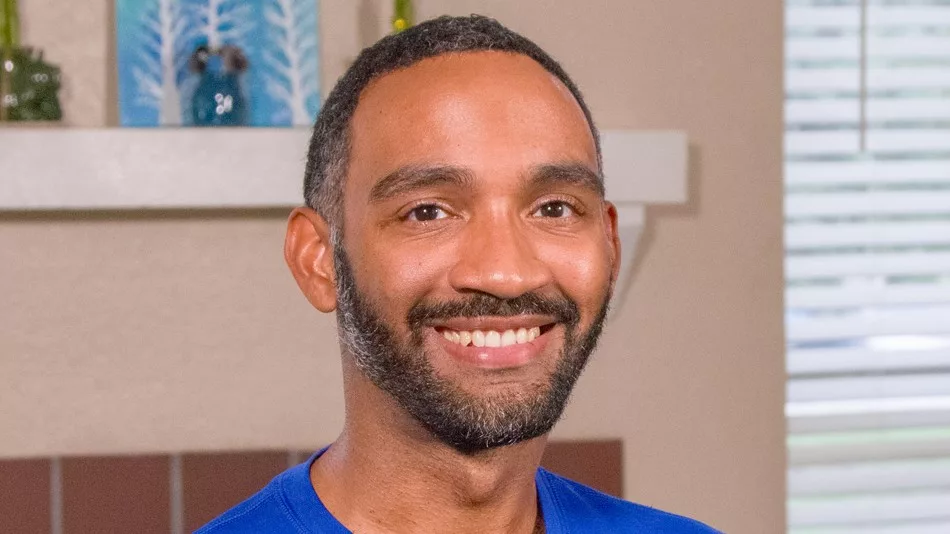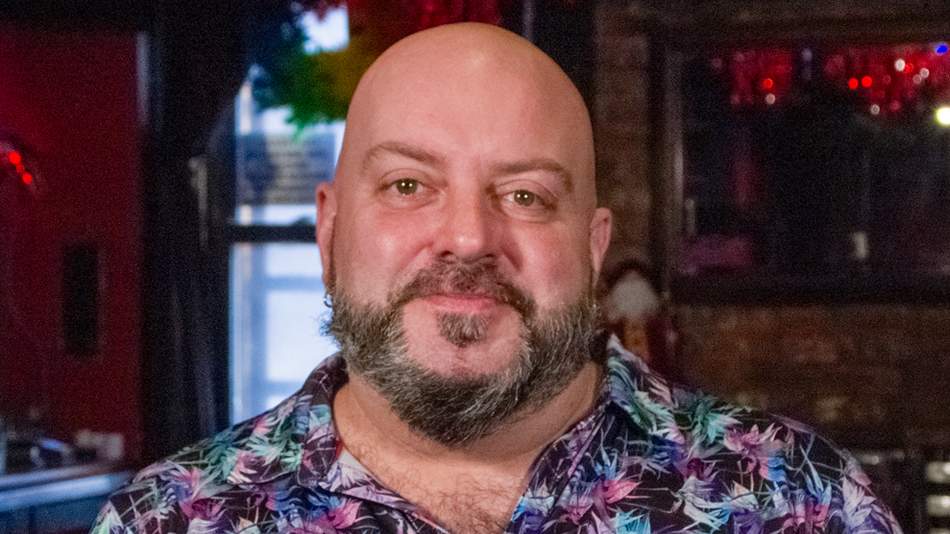I’m Ron Huberman and I’m from Boston, Massachusetts. I first met Harvey Milk when I walked into his camera store on Castro. In the summer of 1975, I was teaching school at that time and I had the summers off, and I decided I would go cross-country. Joining me was a good friend of mine, Keith. Actually I came out to him as a gay man in the car as he did also. And I arrived in San Francisco and I saw a sign that said “Camera Store” and I said to Keith, “Oh, great, we can drop all this film off.” We walked into the camera shop and there was this kind of shaggy-haired guy with a heavy New York accent. “Ron,” he said, “you don’t mind, do you, if I took a couple of these pictures of your little friend Keith, do you, because I want to keep them for myself.” And that’s how I met Harvey Milk. There was an amendment coming on the California ballot, the “No on 6” Amendment which would have banned all the gay and lesbian teachers from teaching in the state of California. And I wasn’t paying attention, I didn’t care, and Harvey said in a New York accent that was priceless he said, “You’re a teacher in New York! They’re gonna take it away from out here! You gotta be a part of it!” There was a rally going on up at a bar called The Shed and I went up there and I met a man by the name of Bill Kraus and Bill and I became very good friends. I joined, through Bill, the San Francisco Gay Democratic Club. In 1977, Harvey ran for supervisor as an openly gay candidate and was elected. Our club was instrumental backing him in that election. A year later in 1979 Harvey Milk was assassinated, as was the mayor of San Francisco, George Moscone, by a gentleman named Dan White who was a former police officer and fireman. Our club then changed its name to the Harvey Milk Gay Democratic Club. Dan White was charged with two homicides. The jury came back with a verdict of voluntary manslaughter. That evening, every bar in Castro was packed and they were 10-deep on the sidewalks. They proceeded to march down to City Hall to protest and as we moved down Market Street passing the restaurants and the bars and the shops, there was a chant that started, “Out of the bars and into the streets!” And it was a universal feeling by everybody that you had to say something about this. Life was not going to go on that evening. I saw lesbian and gay people fight back and really show their anger. The criminal justice system in the late 70s in San Francisco was the good ol’ boy network. You had to go to the right schools, have the right families, and it was all straight white men. November of 1979, the District Attorney who had so miserably presented the prosecution of Dan White was up for re-election and was challenged by a gentleman by the name of Arlo Smith and he made a commitment to the club that if he were elected that he would make sure he would have attorneys and criminal investigators that were women, there were people of color, and were gay. Arlo Smith defeated Joe Fredas who was the incumbent DA overwhelmingly. He came back to the Harvey Milk Gay Democratic Club and said, “We need people to submit applications, I want people from your club, I want people from all over the city.” I submitted my application and I was hired as the first openly gay criminal investigator of District Attorney’s office. When I first began criminal investigations there was a lot of mistrust because the police and the gay community for years in San Francisco had adverse relationships. And in the late 70s early 80s in San Francisco it was very common for lesbians and gay men to be harassed by the police department. The gay community did not trust the police because the police officers were arresting them, i.e., “I’m trying to tell you this guy beat me up on what picked up in the bar.” Well the police officers would turn around and say, “Well, you picked someone up in the bar, that’s illegal.” You now are the criminal. My role as the DA investigator was to work with the bartenders. The bartenders were really important. They were the guys who the victims would complain to and then the bartenders would help me, the older more seasoned investigators. They were amazed that when I would walk into the bar and they would talk to us because for years if they walked into a gay bar, the bartender saw nothing, heard nothing, did nothing. I was getting victim after victim coming in and sitting down and talking to me, often breaking down into tears and outing themselves in front of me but they had to make a decision: “Am I going to continue to be victimized or am I going to step up and finally say what’s happening?” I would go home at night and say, “Hey, I’m really making a difference here.” And it was a very moving part of my life and I enjoyed the work, it was great work. The 80s were the worst of times. I lost friend after friend, lover after lover, and I think that was one of the reasons the DA appreciated me because they knew that a friend of mine might be dying. And I’d rather be there, but I had a job to do. I had many cases of gay men who did not want anyone to know that they had been diagnosed. I was front and center on almost all those cases and I was instrumental in working with a lot of those folks in contacting their families. My straight partners had a more difficult time dealing with it than I did. And the compassion as just a human being would come out of them. And I think it changed, they no longer thought of them as gays and these whatever whatever whatever, they thought of them, “This guy is dying and he hasn’t talked to his mother in 20 years.” And a lot of them are from very solid family backgrounds that they couldn’t believe that you haven’t talked to your mother in 20 years. And we would have great conversations about it and those were good years. The District Attorney’s office in the last 5 years that I was there, it’s like walking through San Francisco and Golden Gate Park. The inclusion of more folks that represented the city of San Francisco to the point where when I was leaving it was probably 50% women. I decided that after 32 years it was time to retire. And I actually retired as a lieutenant which at the time, 2 years ago, the highest rank of an openly gay peace officer in the city and county of San Francisco. I felt very proud of the fact I served all four of the District Attorneys from 1980 to whatever time in 2013. I think back, it all began with Harvey Milk who told me that day in the Camera Store, “You gotta get involved in politics, you gotta do something, you gotta change something.” I’ll always remember that and I followed what he said. I got involved in politics which led me to the DA’s office which led me to working with people. And that’s my story.
The Impact of Meeting Harvey Milk: From Marching in A Protest to Making History in the Workforce.
by Ron Huberman








Share